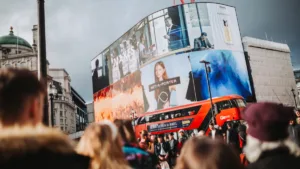Integrated advertising agency MullenLowe Group UK has launched its ‘Invisible Powerhouse’ project, aiming to correct the misrepresentation and stereotyping of people over the age of 55 in the UK advertising industry, in partnership with Kantar.
The over-55 age bracket controls £6 trillion of assets, representing 69.7% of all UK household wealth. They are fast becoming the biggest spenders in every single category yet, and as an audience they are routinely overlooked by businesses. MullenLowe Group UK’s research found that 71% of those surveyed said they were more likely to buy a product from a brand that represents them. This means that brands that do not represent their audience in their communications risk losing out on revenue.
The project broke down the over-55s into seven distinct segments, based on their attitudes, behaviours and buying preferences. This is in contrast to traditional categorisation, based purely on age, that has dominated opinion in Adland.
The benefit of this analysis to marketers and brands is that it can be run and re-run against thousands of lifestyle and consumption filters assessing the relative appeal of rival brands in particular markets for specific 55+ segments.
The seven segments of the Invisible Powerhouse are:
Caring Conformists: 15% of UK adults. They believe in fair play, family, and community, and sticking to the rules. They are a little worried about their health and have check-ups even when they feel fine. A ‘Caring Conformist’ likes advertising that tells a story and is relevant to their life and is price-conscious about what to buy, often preferring to choose low prices over expensive brands.
Security Seekers: 14% of UK adults. Worry about themselves and the world around them. They trust their own knowledge rather than the ‘powers that be’, intimidated by the pace of change and new technology. A ‘Security Seeker’ watches a lot of television, and values ads that amuse them but are rarely tempted to buy new products or technologies.
Savvy Spenders: 18% of UK adults. They are pleasure-loving impulse buyers but know how to spend on a budget, often using discount codes and cash to budget more effectively. A ‘Savvy Spender’ uses adverts to inform their buying decision and will remember an entertaining ad.
Carefree Hedonists: 12% of UK adults. Live, laugh and love in the moment – they are spontaneous and impulsive, an optimistic lot who don’t worry about much. They find advertising an annoying encroachment in their entertainment and hate being overtly ‘sold to’. A ‘Carefree Hedonist’ spends without thinking on brands that they know and trust, and are the group most comfortable on their current income.
Experience Lovers: 13% of UK adults. Always want more from life – more from their careers, adventures, food and culture. They are careful, conscious spenders who plan their purchases and rarely buy on impulse. An ‘Experience Lover’ feels that advertising should entertain them and inspire them to make a purchase.
Accountable Citizens: 13% of UK adults. Work hard, live responsibly and do their bit for good causes. Passionate about nature and the environment, you’ll often find them outdoors. They believe advertising should be informative or ground-breaking if it is going to get in the way of their entertainment. An ‘Accountable Citizen’ is concerned by the virtue of the things they buy, and, though careful with money, will pay extra for organic products.
Social Progressives: 14% of UK adults. Believe in change, passionate about equality, the environment and they are arts and culture enthusiasts. They resist consumerism and corporate greenwashing, but will respond to ads that are genuine, informative and enjoyable. A ‘Social Progressive’ considers the provenance and politics of the things they buy, typically buying free range and Fairtrade produce.
According to a recent survey by Gransnet, 74% of over 50s said ‘advertising underrepresents my age group’, and this is supported by additional research. MullenLowe Group UK found that 47% of UK adults are in their 50s and above (24.6 million), while only 12% of UK adverts currently feature someone over 50 in a leading role (Channel 4 Mirror on the Industry Report, 2021). This is a trend repeated across all sectors, with 87% feeling underrepresented in technology, 79% in entertainment and 76% in cosmetics.
When people aged over 55 do appear in advertising, they are routinely misrepresented and caricatured as one singular demographic, in need of pity and help. MullenLowe Group UK’s research showed that 88% of people aged over 55 felt unhappy about the way advertising treats them, whilst 7% felt angry and 15% depressed or disheartened.
Ayesha Walawalkar, CSO at MullenLowe Group UK said if the findings: “Ageism is rife in Adland and people over a certain age are still too routinely stereotyped, based on outdated ideas. This new approach represents a step in the right direction for the advertising industry, especially given that in a post-pandemic world, it is more important than ever for brands to reflect their customers’ values as consumers continually reassess their spending priorities. Above all, I hope that this serves as a wake-up call for advertising. The industry’s aim has always been to elicit emotional responses and create work that people can relate to, and if it is unable to do that, then we all need to rethink the ways we go about our work.”









